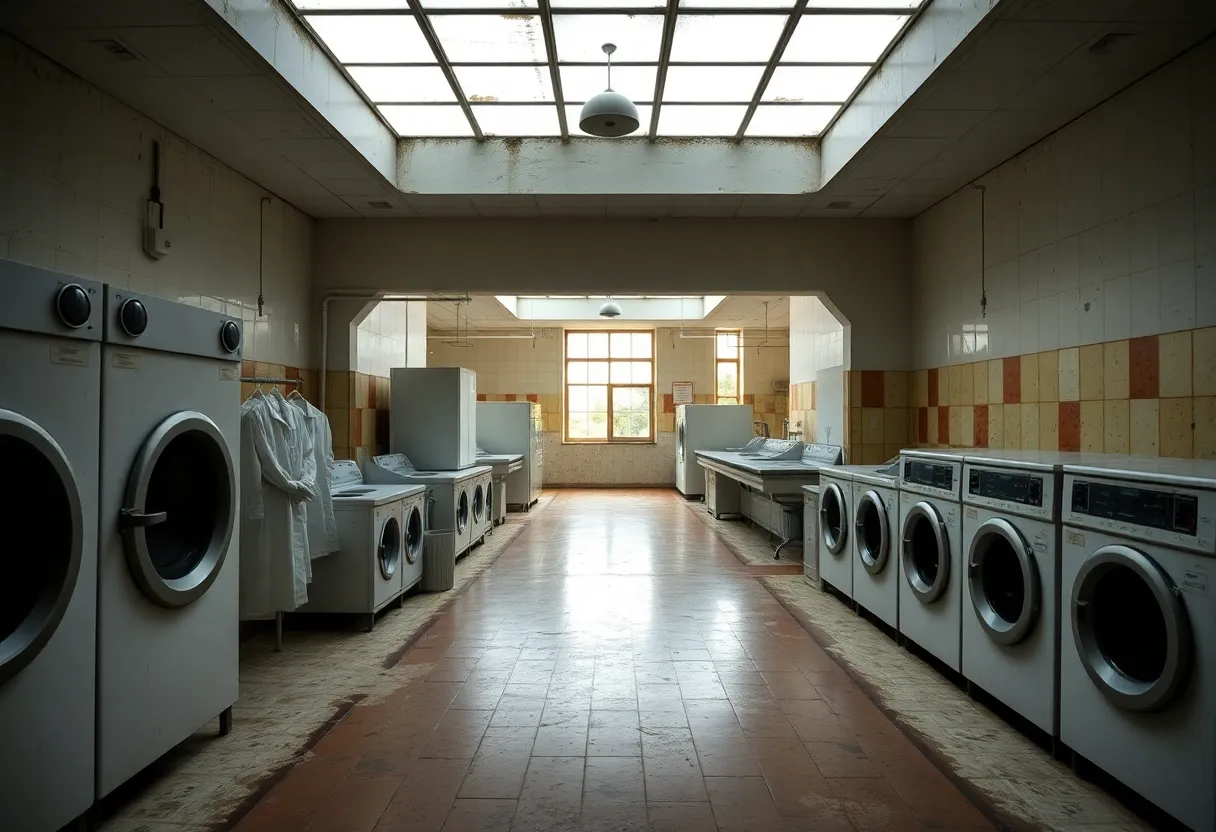News Summary
Jenny Turner, a former Royal Navy Hospital employee, has been diagnosed with asbestos-related pleural thickening lung disease after years of exposure. Although she worked in what seemed like a normal environment at the hospital, she was unknowingly subjected to hazardous materials. Turner is now seeking compensation from the Ministry of Defence while calling for support from former colleagues to bolster her case. This case, along with another involving a man succumbing to mesothelioma, highlights the ongoing impact and dangers of asbestos exposure in historical workplaces.
Former Royal Navy Worker Faces Battle with Asbestos-Related Illness
In a heart-wrenching turn of events, Jenny Turner, a 64-year-old former employee of the Royal Navy Hospital Haslar in Gosport, has been diagnosed with pleural thickening lung disease believed to stem from her exposure to asbestos during her time at the hospital. With a career spanning from 1976 to 1985, Turner is now facing the painful consequences of a hazardous work environment that, unbeknownst to her at the time, harbored hidden dangers.
A Lifetime of Suffering Brought to Light
Turner dedicated years of her life working in the hospital’s laundry, where her duties involved handling and pressing numerous items, including doctors’ coats, nurses’ uniforms, and porters’ coats. During those formative years, she unwittingly encountered asbestos-laden materials, commonly utilized in the production of laundry press cushions and found within the fabric and piping of the facility’s aging infrastructure.
It took more than five decades for the repercussions of that exposure to surface, but Turner now suffers from debilitating symptoms including chronic breathlessness and overwhelming fatigue. The gravity of the situation has prompted her to seek compensation from the Ministry of Defence (MOD) for the industrial disease she contracted as a result of her work conditions. Such claims are significant not only for recovering damages but also for securing future care as she navigates the complexities of her illness.
A Call for Support: Evidence Needed
As Turner prepares her compensation case, she is fervently appealing to her former colleagues who worked in the Haslar laundry department to assist her by providing relevant evidence pertaining to their shared work environment. Testimonies from those who labored alongside her could play a pivotal role in substantiating her claim, underscoring the serious implications of asbestos exposure in industrial settings.
The Dark Legacy of Asbestos
The Royal Navy Hospital Haslar, which was operational since the 1740s and only closed its doors in 2009, stands as a testament to the long-term ramifications of asbestos use within government facilities. Millions have been exposed to this hazardous material, which remains a pressing concern even years after its ban in many countries, given its lengthy latency period in the manifestation of related diseases.
Another Tragic Case: A Husband’s Fight Against Mesothelioma
In a separate but equally harrowing case, Pete Hughes, a Gosport resident, tragically succumbed to mesothelioma after being diagnosed with the aggressive cancer earlier this year. At 74 years of age, he faced the disease with courage following many years of working as an electrician’s mate at Cyanamid of Great Britain from 1967 to 1970, where he was frequently exposed to asbestos-laden materials.
Hughes’s journey, which began with seemingly innocuous shoulder pain that progressed into significant health decline, serves as a stark reminder of the dangers of asbestos exposure. Following his diagnosis, his family was left in shock as they grappled with the reality of a terminal illness that changed their lives forever. His wife, Sue Hughes, is now desperately seeking to uncover more information about his work history to ensure that any potential sources of exposure are thoroughly recognized and documented.
The Importance of Raising Awareness
The cases of both Turner and Hughes illuminate the overlooked legacy of asbestos in workplaces, particularly in historic military and industrial facilities. As more individuals come forward with similar experiences, the necessity for robust compensation claims to cover treatment and support becomes critical, drawing attention to the need for ongoing advocacy and awareness surrounding the dangers of asbestos exposure.
Anyone with pertinent information regarding the work experiences of Turner or Hughes is encouraged to reach out as these testimonies may significantly contribute to their ongoing battles against asbestos-related diseases.
Deeper Dive: News & Info About This Topic
HERE Resources
Retired Carpenter’s Asbestos-Related Death Prompts Investigation
Local Woman Diagnosed with Pleural Thickening Linked to Asbestos Exposure
Veteran Exposure to Asbestos: A Growing Health Crisis
The Dark Legacy of Asbestos at Electric Boat Shipyard
Rising Concern Over Asbestos Exposure Among Veterans
Raising Awareness: National Military Appreciation Month and Veteran Health Risks
May Marks National Military Appreciation Month: A Call to Action for Veterans’ Health
The Hidden Dangers of the USS McKean II: Asbestos Threats Uncovered
Shocking Reality: The Hidden Dangers of Asbestos and Mesothelioma
Asbestos and Its Impact on Veterans Amid Recent Legal Proceedings



















